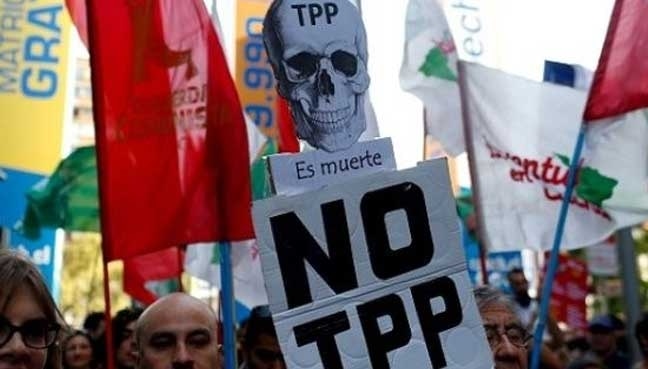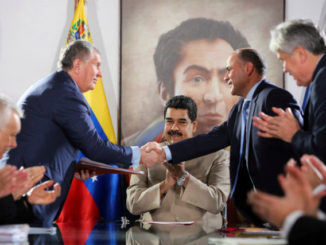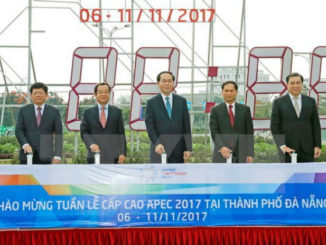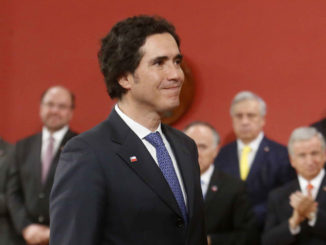
SANTIAGO – Today, eleven foreign ministers will sign the Comprehensive and Progressive Agreement for Trans-Pacific Partnership (CPTPP) set to slash tariffs among member nations by 2019.
Dozens of people protested on Wednesday in Chile where the signing of the new Trans-Pacific Partnership Agreement (TPP) will take place in the country’s capital.
The new Comprehensive and Progressive Agreement for Trans-Pacific Partnership (CPTPP), also known as TPP-11, was the result of negotiations that took place in 2016 involving 11 countries: Australia, Brunei Darussalam, Canada, Chile, Malaysia, Mexico, Japan, New Zealand, Peru, Singapore and Vietnam.

The TPP had seemed dead in the water after Donald Trump took the U.S. out of the deal early last year. But after overcoming differences, Australia, Brunei, Canada, Chile, Japan, Malaysia, Mexico, Peru, Singapore, Vietnam, and New Zealand finalised the details of the agreement in Tokyo on Tuesday, paving the way for the official signing today.
The #AsiaPacific region is the most dynamic in the world and the #CPTPP is a great opportunity to improve the conditions of access of several of our emblematic products to the region, such as wines, meat and seafood #trade #TPP11 ??? pic.twitter.com/05o41vX6gL
— Chile MFA ?? (@ChileMFA) March 7, 2018
The original TPP would have represented roughly 40% of the world’s economic output. Without the U.S. which was taken out of the deal by President Donald Trump, the new pact will cover just 13% of global GDP, but still include around 500 million people.
The document was first introduced by Chinese President Xi Jinping last November. These governments agreed on its content Jan. 23 and by Feb. 21 its 30 chapters were released to the public.
Chile prepares for Trans-Pacific Treaty signature ceremony on March 8
The pact, which will significantly cut import taxes on a variety of products and services traded among these countries, is being criticized by Australian unions and leftist parties Chile and New Zealand for infringing on their respective national sovereignty.
No to modern slavery, no to the TPP-11 – and – The TPP and TPP-11 are the same!? were among the statements written on banners carried by the demonstrators, who protested against the new TPP agreement in the area between the Defense Ministry and La Moneda Palace, headquarters of the Chilean government.

The protestors are criticising the lack of information and public debate.
“We are going to continue fighting because it still must be approved after the vote,” said activist Patricia Nuñez, who added that protests were also carried out in other cities nationwide and that they had sent hundreds of letters to Chilean deputies to voice their disapproval of the new TPP.

The People’s Democratic Movement party of Chile said via Twitter the trade deal will be disastrous for small and medium-sized businesses and will give disproportionate power to multinational corporations that can, under the soon to be signed accord, sue individual member states in international courts.
El @MDPChile presenre dice #NoAlTPP11 pic.twitter.com/Nr3ngECZkj
— MDP (@MDPChile) March 8, 2018
For TPP11 to enter into force, it must be ratified by half plus one of the member countries, that is, six.



